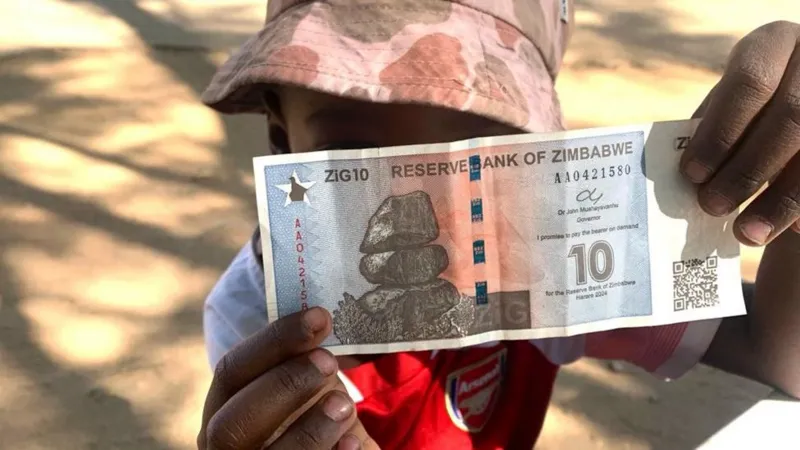Zimbabwe’s Currency Woes: What’s Next for Economic Stability
Sylvia Dhliwayo, an adept navigator of Zimbabwe’s tumultuous economic landscape, finds herself disheartened. Each day, she diligently toils to finance her four children’s education. Rising before dawn at 04:00, she embarks on a journey to Mbare’s bustling central market in Harare, where she procures maize, peanuts, doughnuts, eggs, and buns to stock her street stall in the local neighborhood.
Mbare, a vibrant hub of commerce, dictates its prices amid the ever-fluctuating economy. From tomatoes to avocados to pots to second-hand garments, the recent governmental decision to introduce a new local currency has stirred frustration among Sylvia Dhliwayo and her fellow traders.
With an abruptness that caught many off guard, the new currency dubbed the Zig (short for “Zimbabwe gold”), replaced the digital RTGS currency and the cash “bond notes” merely a month ago. Ostensibly, this measure aims to combat the relentless inflation and hyperinflation that have plagued Zimbabwe for the past two decades, prompting most citizens to abandon the Zimbabwe dollar in 2009 in favor of the US dollar.
For Sylvia, the impact was immediate. Just before Zig’s introduction, she would sell a packet of peanuts for $0.50 or Z$2,500 bond notes. However, following Governor John Mushayavhanu’s directive for Zimbabweans to exchange their bond notes within three weeks, the value plummeted overnight. Sylvia’s peanuts now commanded a staggering Z$40,000, prompting her to accept only US dollars as payment.
Despite the government’s intentions, the transition has been far from smooth. The elusive Zig primarily exists in digital form, rendering it inaccessible to many in a country plagued by frequent blackouts that inhibit phone charging. Consequently, transactions predominantly revolve around US dollars, exacerbating the scarcity of US coins, often substituted with lollipops for change in supermarkets.
While Governor Mushayavhanu attributed the currency change to advice from the World Bank, skepticism abounds among Zimbabweans, weary from enduring six currency iterations in two decades. The lack of public awareness surrounding Zig’s introduction further compounds the uncertainty, leading to logistical challenges for businesses and tourists alike.
Amidst the chaos, black market foreign exchange traders are under increased scrutiny, even as the broader populace grapples with the impracticalities of conducting everyday transactions in a landscape of economic uncertainty. This reality underscores the enduring challenges facing Zimbabweans, who, despite their resilience, find themselves entangled in a seemingly endless cycle of financial upheaval and uncertainty.



















